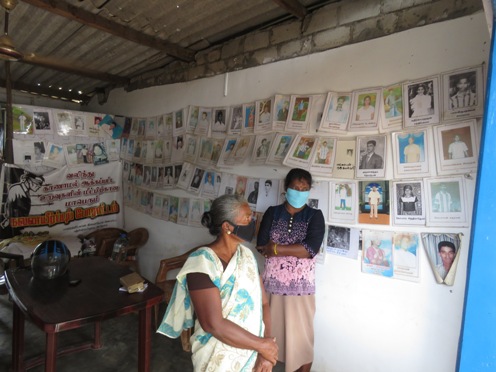Cabinet nod for truth & reconciliation mechanism as talks threaten to collapse
COLOMBO – As talks between Sri Lanka President Ranil Wickremesinghe and the opposition Tamil National Alliance (TNA) on a final solution to the island nation’s decades-long ethnic issue hang in the balance, the cabinet of ministers has greenlit a high-level proposal to initiate a truth and reconciliation mechanism.
A government statement said on Tuesday (17) said cabinet has approved a consolidated resolution made jointly by the president, prime minister and five cabinet ministers “to take necessary actions to implement the concept of truth and reconciliation mechanism (sp)”.
The proposal was made by President Wickremesinghe, Prime Minister Dinesh Gunawardena, Minister of Fisheries Douglas Devananda, Minister of Education Susil Premajayantha, Minister of Justice Wijeyadasa Rajapakshe, Minister of Urban Development Prasanna Ranatunga and Minister of Foreign Affairs Ali Sabry.
“Requirement of an independent local mechanism to search for the truth as a meaningful way to bring forward the peace achieved after ending the conflicts sustained for 30 years and to secure it is apparent. Sri Lanka has established several independent investigation commissions for seeking reconciliation after the conflicts. Accomplishment of all the recommendations of those commissions is vital,” the government statement said.
The announcement came in the wake of a statement by President Wickremesinghe on Sunday (15) that a full implementation of the 13th Amendment to the Constitution was on the cards.
However, the Tamil National Alliance (TNA), a key player in the ongoing talks, has expressed scepticism, with TNA MP M. A. Sumanthiran stating that successive governments have made the same promise for 35 years, to no avail.
“Nobody takes it with any seriousness because it has been constantly promised. It’s a question of implementing it. The president with his executive powers can do it,” he said.
The 13th Amendment to Sri Lanka’s Constitution emerged from the controversial Indo-Lanka Accord of 1987 as a purported solution to the worsening ethnic conflict, four years after war broke out. Provincial councils came in the wake of the amendment, though land and police powers have yet to be devolved to the provinces as originally envisioned. Both Sinhalese and Tamil nationalists have historically opposed the amendment, the former claiming it devolved too much, the latter complaining it didn’t devolve enough.
President Wickremesinghe in November 2022 expressed his intention to find a final solution to the ethnic issue by February04 this year when Sri Lanka celebrates the 75th anniversary of its independence from the British.
This deadline is now appearing increasingly unrealistic, with talks between the government and the TNA being less than successful.
-economynext.com



Comments are closed, but trackbacks and pingbacks are open.